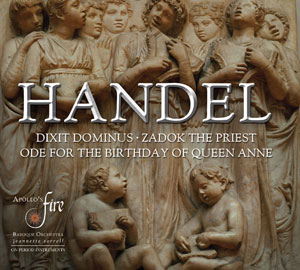Antoine Dunn. Truth of the Matter.
Two words describe my feelings about Antoine Dunn’s debut album: “Incredibly Smooth”. Many debut albums do not come with such delivery and at such high caliber. Especially impressive is the fact that he is self-trained. National respect and attention should be coming Antoine’s way soon. Mark my words, this artist is the total package and is poised for huge future success.
Hailing from Cleveland, Ohio, this 24 year old R&B artist has all the right pitches in his arsenal. Are we talking about baseball you ask? On the contrary, I am referring to his amazing vocal range and tone. Antoine brings a refreshing blend of old and new, R&B and gospel that will keep you wanting more. To be quite honest this was the first album in some time that made me want to listen straight through to its completion.
The singles “Can’t Forget” and “Miss My Love” reached inside the Adult Contemporary top 20 and rightfully so. There are segments of songs Like “Can’t Forget” where Motown flavor is present, Dunn’s voice almost sounding like Stevie Wonder’s. The inspiration of artists like Donny Hathaway really shows in the performance of his songs. I particularly like lyrics on all the songs as they deliver a very uplifting message and prove relevant to the listener. All the songs are written and many performed (on piano) by Antoine Dunn and this shows the true talent he has in so many facets of music. Stylistically, the tracks vary from popular music to gospel music to ballads. All are done with an unprecedented amount of fluidity. “Miss My Love” contains soothing tones, sensual vibrato and pain in the vocals. I am a fan of many songs on this album but this one is a perfect example of how Antoine connects to his listeners with stories being told from the heart. A tune like “I Just Want to Say” has a classic soft jazz feel characterized in the drumming style and piano work. The musicianship by Antoine and those who play on the tracks is incredible. Bass guitar is such an important instrument. The bass riffs are right in step with the groove. “The Power of Love” is fitting for a drive on a sunny day or for listening to in the comfort of your own room at home.
Each song on the album brings a new story and flavor to show off Antoine’s sound. Truth of The Matter showcases the talented artist from the shores of Lake Erie. It is not often that a great soul man comes along. Antoine is exactly that for this generation of listeners. Everyone should give this album a listen. I think you will find it a quite enjoyable experience.
Personnel: Antoine Dunn (All Lead Vocals) Audrey Maupin, Lisa A. Nicholas, Shamia Ruffin, Adrian Dunn, Katrina Marie Hawkins, Edwin Nicholas and Antoine Dunn (Background Vocals), Jack Winsett, Chris George, Edwin Nicholas, Steve Gordon and Alex Tyus (Acoustic and Electric Guitar) Edwin Nicholas (Bass Guitar) Jerry Lang II Rhodes, Antoine Dunn, Travis Payton, Edwin Nicholas, James Timbali Cornwell (Drums, Keyboards and Drum Programming) Antoine Dunn (Piano) Steven Fowler (Organ) Lem Adams (Vibes) Greg Adams (Strings) Hanne-Berit Hahnemannm (Violins) Linda Atherton (Cello)
Tracks: Can’t Forget, Back to You, It’s Over, Miss My Love, I Just Want To Say, Stand Tall, Power of Love, She Pleases Me, Sweet Lady, I Am, One Woman Man (I’m Ready), Truth of The Matter
Andrew Martin














